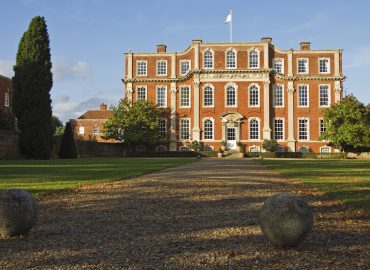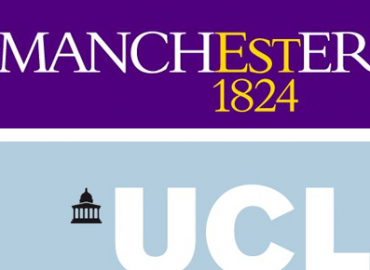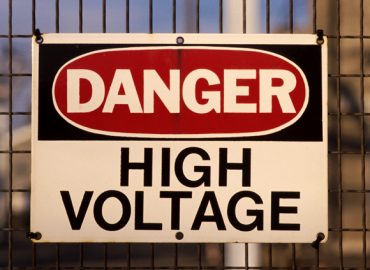2024 Aarhus Excitability Workshop
8th-10th May 2024, Aarhus Denmark
We are delighted to announce that the Aarhus Excitability Workshop is once again on the calendar for May 2024. This workshop represents an invaluable opportunity to learn from experts in the fields of nerve, muscle and cortical excitability, combining lectures covering the fundamentals with plenty of hands-on practical training.
Aim
To provide a good grounding in the theory and practice of nerve, muscle and cortical excitability testing, and in the analysis and interpretation of nerve excitability data. By the end of the course, all participants should be able to make Qtrac/Trond recordings of multiple excitability properties to a publishable standard and good degree of reproducibility. The course will give a good introduction to the biophysical basis of the excitability measures recorded and an appreciation of the difficulties as well as possibilities for interpreting abnormal recordings.
Who should apply?
The workshop is intended primarily for clinical neurophysiologists wishing to supplement nerve conduction studies with nerve excitability studies, but it should also be of value to neurologists and neuroscientists with particular interests in the excitability of peripheral nerve, muscle and the motor cortex.
Organizers
Hatice Tankisi and James (Tim) Howells
Faculty
Hatice Tankisi (Denmark), James (Tim) Howells (Australia), Hugh Bostock (United Kingdom), Boudewijn Sleutjes (Netherlands), Werner Z’Graggen (Switzerland), Veronica Tan (United Kingdom), Martin Koltzenburg (United Kingdom), Jordi Serra (United Kingdom), Alexander Gramm Kristensen (Denmark), Kelvin Jones (Canada), Gintaute Samusyte (Lithuania), Bülent Cengiz (Turkey).
Teaching programme
For the most part, each session will involve 2 short talks followed by a demonstration or hands-on session. There should be ample time for questions and discussion throughout, and plenty of opportunities for follow-up questions throughout the workshop. Hands-on time will allow all participants to gain experience in the techniques as both operator and subject and will be scheduled throughout the workshop. Free time on the equipment will also be available most days.
WARNING: We regard it as important that all those planning to use excitability testing know what it feels like, and essential that every participant gets plenty of ‘hands on’ time in control of the equipment. It is therefore a condition of enrolment that participants agree to submit freely to being tested by their co-participants.
N.B. The electrical stimulators used will be exclusively Digitimer DS5s, which are medically CE approved, have comprehensive safety features, and have an unblemished safety record. For magnetic stimulation, we will be using the MagStim BiStim systems which also have an excellent safety record.
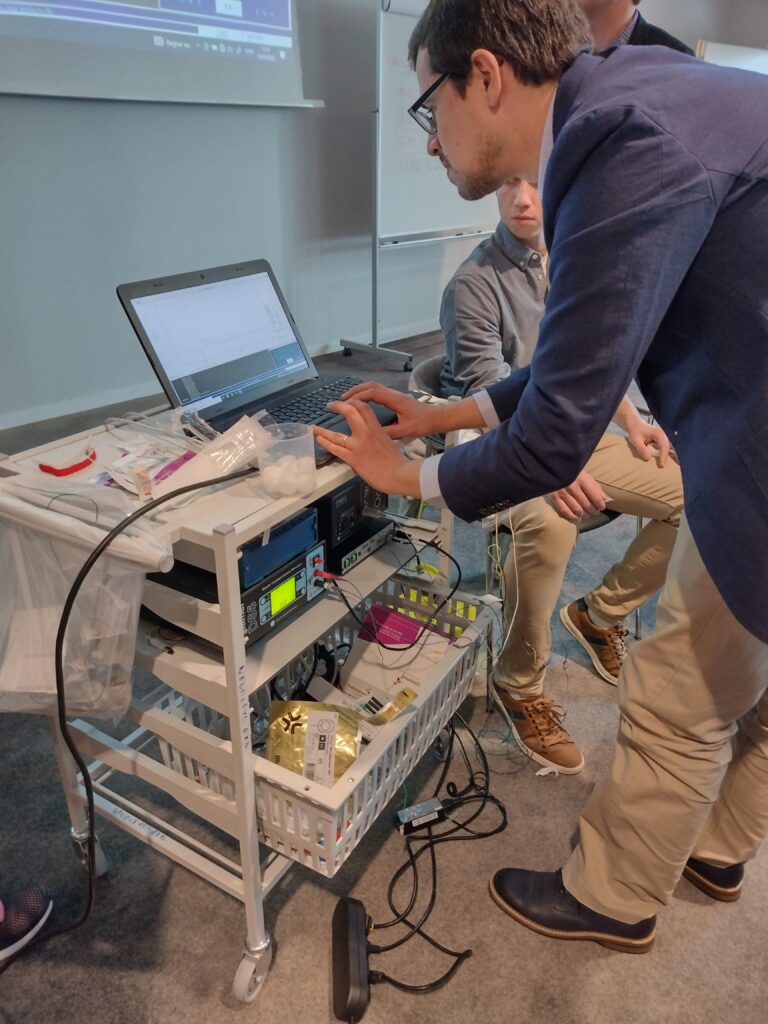
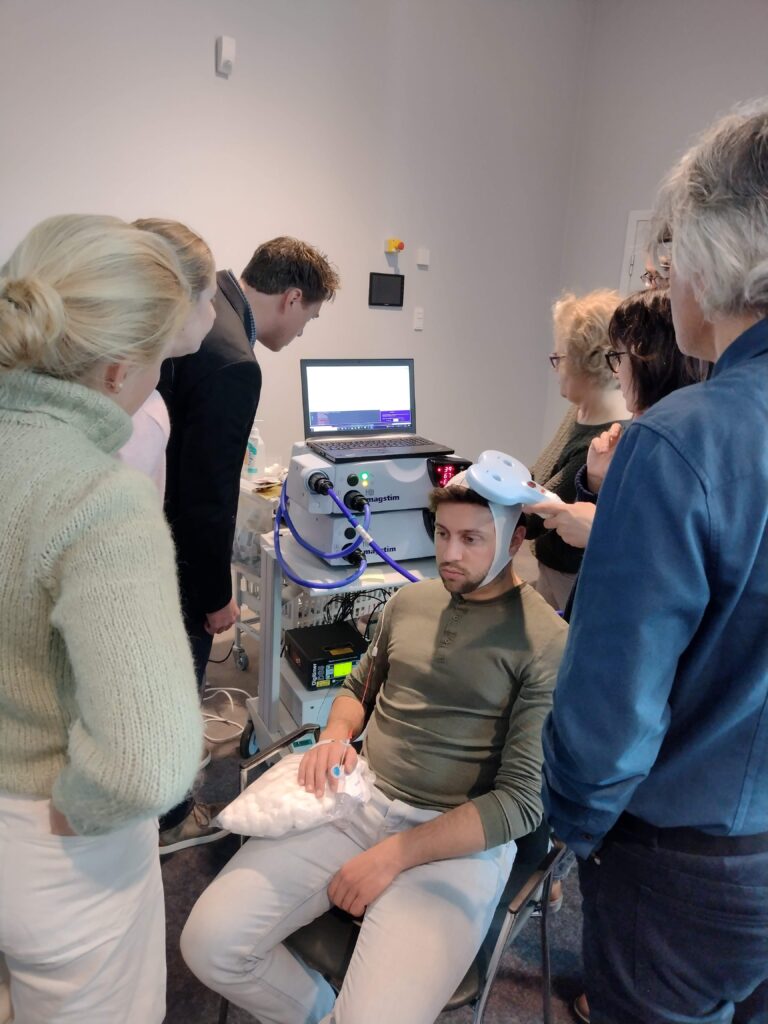
Posters
Those participants having nerve, muscle or cortical excitability results that they would like to present, or even very preliminary results they would like advice on, are encouraged to bring posters.
The posters will be displayed throughout the meeting.
Assessment
There will be no formal assessment.
Registration
The workshop registration fee covers all tuition and use of equipment, coffee/tea, lunches and dinners during the workshop. The number of participants will be limited to approximately 25 persons.
Digitimer is handling payment registration fees for the workshop via the Stripe payment portal. All payment transactions will attract an additional 3% administration fee. The fees for participation are (in British Pound Sterling): £900 (+ £27 admin fee) = £927 Registration and payment details will follow shortly. Please contact us for further details.
Venue
Aarhus University Hospital is located in Skejby (15mins from Aarhus Central by car).
Google Map: https://goo.gl/maps/GZYHBaPUfupjrdky9
Visiting Aarhus
VisitAarhus has a range of suggestions for accommodation in and around Aarhus and practical travel information for getting to Aarhus.
Accommodation
The dinners during the workshop will be in the central district of Aarhus, so it probably makes sense to stay somewhere near there.
Getting to Aarhus
The closest major airports are: Aarhus (AAR), Billund (BLL) and Copenhagen (CPH):
Aarhus airport (AAR) is the closest airport (44.1km) to Aarhus City. The shuttle bus takes about 45
minutes to get to Aarhus city and leaves frequently (20 minutes after each flight arrival). Cost DKK100
Travel suggestions:
https://www.rome2rio.com/map/Aarhus-Airport-AAR/Aarhus
Billund airport (BLL) is 100km south of Aarhus City. The shuttle bus takes about 1.5 hours and costs DKK150.
Travel suggestions:
https://www.rome2rio.com/map/Billund-Airport-BLL/Aarhus
Copenhagen airport (CPH) is the main international airport in Denmark and is located close to Copenhagen. From there you can choose a domestic flight to Aarhus Airport (40 minutes), or catch a train to Aarhus Central which takes about 3.5 hours.
Travel suggestions:
https://www.rome2rio.com/map/Copenhagen-Airport-CPH/Aarhus
Representatives from Digitimer will be in attendance at the workshop and available to provide information relating to the equipment required for nerve, muscle and cortical excitability testing.

